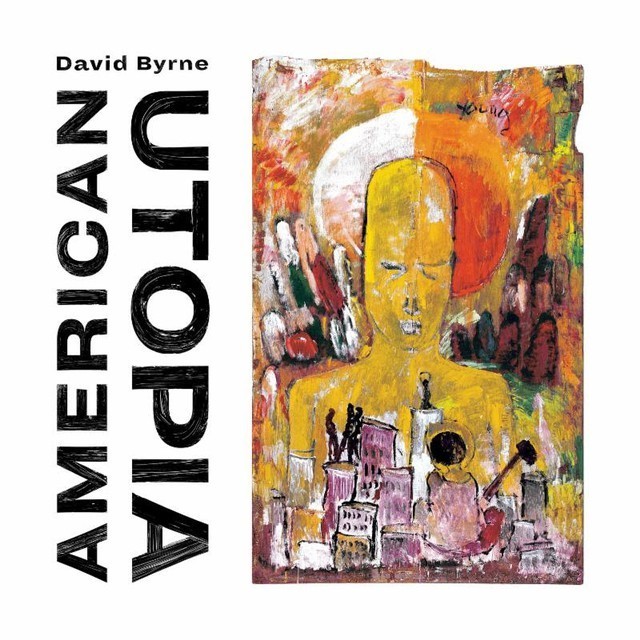American Utopia might be David Byrne’s first solo record in 14 years, but the former Talking Heads frontman has been hard at work on an eclectic mix of side projects since the 2004 release of his last album, Grown Backwards. Perhaps the most intriguing of his ventures is the launch of his website Reasons to be Cheerful, a collection of local news stories from around the world. The website endeavours to highlight small-scale good in an effort to counteract the overwhelming doom and gloom of the rest of the daily news. American Utopia depicts the world in a similar way: Big and scary in a macro sense, but beautiful up close.
Though officially a solo album, American Utopia boasts an impressive, although unfortunately exclusively male, list of 25 collaborators. Among them is longtime friend and fellow synth enthusiast, Brian Eno, whose signature full-bodied, warm sound is especially evident on the tracks “Gasoline and Dirty Sheets” and “Everybody’s Coming to My House.”
Byrne stays true to the frantic—yet deliberate—style that he perfected in the late ‘70s, peppering his tracks with lazy percussion and urgent guitar riffs. In the moody, saxophone-heavy lead single, “Everybody’s Coming to My House,” Byrne revisits his fondness for brass instruments, first exhibited on his 2012 collaboration with St. Vincent. Byrne’s lyrics also remain as outrageously profound as ever. “The cockroach might eat Mona Lisa / The pope don’t mean shit to a dog!” he croons on “Every Day is a Miracle.”
American Utopia is not without moments of darkness. In “I Dance Like This,” Byrne’s disdain for capitalism is apparent as he sings, “And the truth don’t mean nothin’ / If you ain’t got the cash.” The album is a thoughtful reaction to the pessimism and anxiety of our time, but it’s also a reminder to be cheerful about the simple and the small. Byrne says it best in the chorus of “Dog’s Mind” when he sings, “We are dogs in our own paradise / In a theme park of our own/ Doggy dancers doing doody / Doggy dreaming all day long.”









